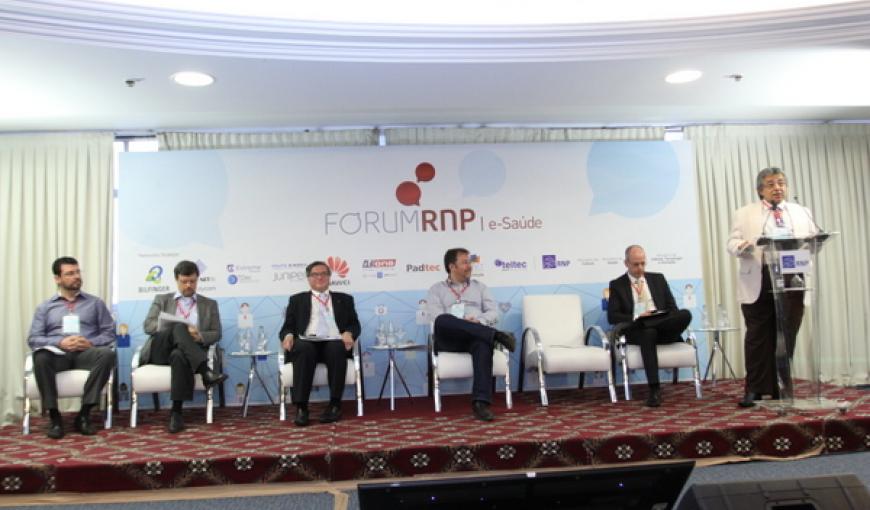Security and privacy were discussed on the last day of the 2014 RNP Forum
Earlier on Thursday, on 09/04, the III RNP Forum hosted a lecture on security and privacy, focusing on laws that regulate the internet today. As highlighted by Lawyer Omar Kaminski, expert in Computer Law and Legallabs Managing Partner, “today we can no longer say that the internet is a lawless land.”
Kaminiski talked about the Brazilian Civil Rights Framework for the Internet, highlighting its importance. “It's a principled law, so it is called Cyberconstitution. It repeats provisions of the Federal Constitution and the Consumer Defense Code, ensuring individual rights and guarantees,” he explained.
The RNP Services and Solutions Director José Luiz Ribeiro Filho highlighted a controversial topic of the Framework: network neutrality. “It involves big economic interests and justifies the confusion surrounding the topic. The question can be understood through the cable TV service. When we hire a package, we receive channelsthat are pre-established by the contracting company. If a new provider, a new channel arises, it cannot hurt us. This is the non-neutral model, which also happens today in the internet. We fail to have the opportunity to choose what to use or not on the network,” he exemplified.
Another aspect that the director pointed out was the inspection of user navigation. “For the internet provider to be able to get to know our preferences, it inspects our navigation, which is our own consumption profile. It is a privacy violation. Fortunately, the Civil Rights Framework understood this issue and ensured the network usage neutrality, which is not pacified in other countries, such as the United States, for example,” he described.
The APURA Cybersecurity Intelligence CEO SandroSüffert stressed the differences between cyber-attacks carried out in the past and today. “At the detection level, it was formerly possible to discover by default. Today, this is not enough. We must invest in computer awareness. Before, the reaction was blocking provided attacks. Today, it is the responsibility of players. Thus, we need to separate the background noise of targeted and persistent attacks and assign responsibilities,” he argued. To Suffert, “information security should be seen as a counterintelligence operation.”
In the same debate, the Federal Professional Education Network of Institutions National Council (Conselho Nacional das Instituições da Rede Federal de Educação Profissional - Conif) President Luiz Augusto Caldas Pereira reaffirmed that “security is a fundamental principle”. He posited that "the institution model we have leads us to think carefully about the information security issue, with care, commitment, and responsibility of dealing with a body of knowledge of the Brazilian society”.
Finally, the National Association of Directors of Federal Institutions of Higher Education (Andifes) President Targinode Araújo Filho advocated that in order to ensure proper implementation of information security at educational institutions, it is necessary to value their respectiveInformation Technology (IT) professionals. “We must invest in IT staff, create positions with special duties posts for servers that occupy such positions in this area,” he said.
According to him, "the Framework brings the state's commitment to universal access. The big challenge is to build an orchestrated schedule to discuss these issues with the involved agents”, he concluded.
